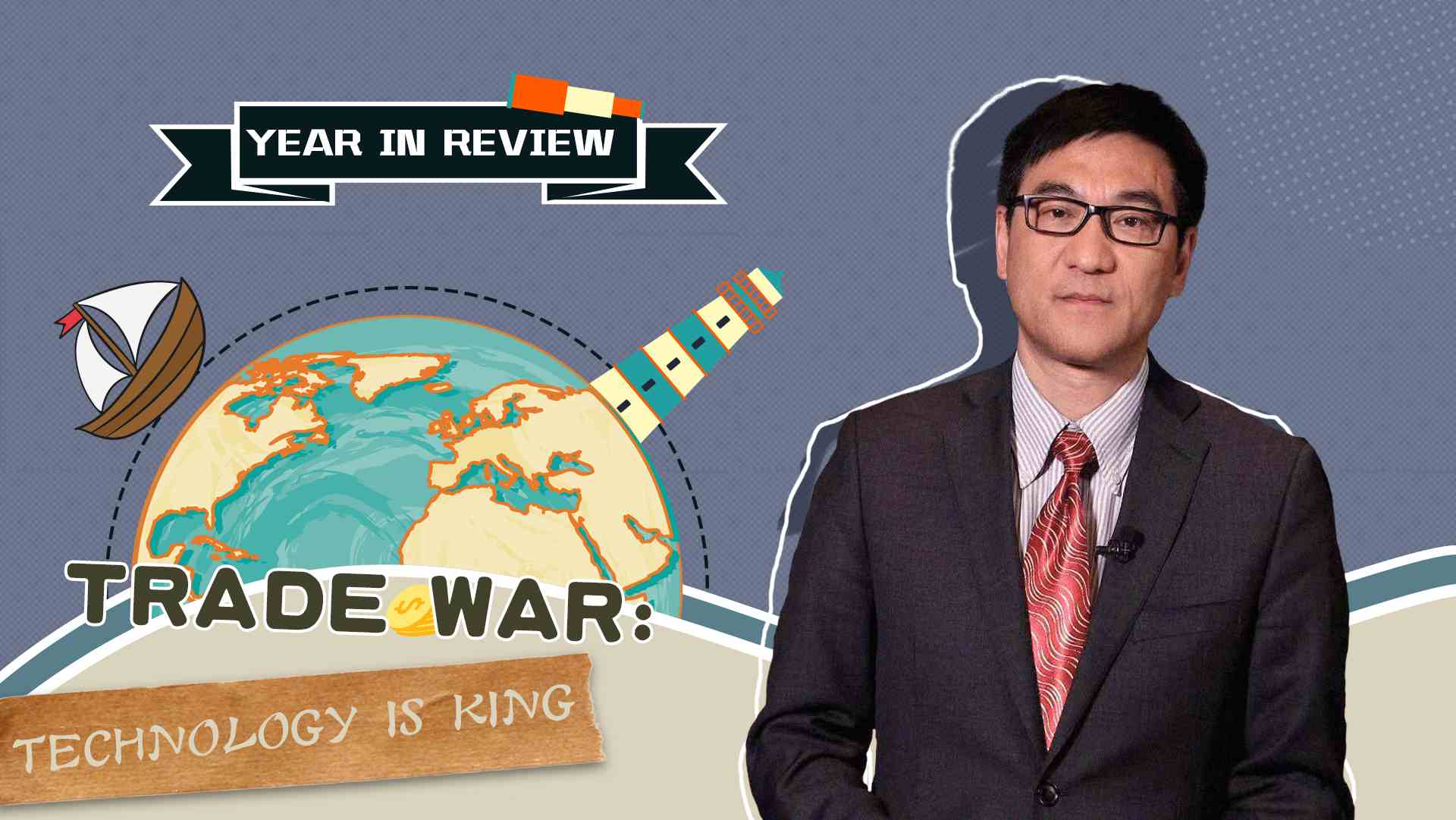
Opinions
07:55, 24-Dec-2018
Year in review: Technology is king
Updated
07:06, 27-Dec-2018
John Gong
04:59

Editor's note: 2018 was more dramatic than many other years in recent memory, and as we move into the new year, it's time to look at the major ups and downs of the past 12 months and consider how they will impact the future. Among them is the Sino-American trade war, the worst dispute of this kind in decades. Dr. John Gong, a research fellow at the Charhar Institute and a professor at the University of International Business and Economics of China, discusses one of the key issues in the dispute: Intellectual property rights protection and the pragmatic solutions needed to improve it.
It's been almost 16 months since the Sino-American trade war has started, if we considered the US Trade Representative's Section 301 investigation to be the opening salvo.
At the surface, the dispute appears to be about America's trade deficit, but what lies at the heart of this matter is America's concern of losing its technological edge to China, and perhaps more importantly, what America perceives as the reasons behind this trend.
The American narrative, at least in the eyes of Trump advisors, is that China is able to progress quickly on the technological front because of theft and coercion.
For example, in a recent interview, Robert Lighthizer appears to be relaxing on demand on all other structural issues, while being absolutely adamant about China's addressing everything related to intellectual property rights (IPR). In their view, keeping a technological lead is vital for maintaining good jobs and defense supremacy.
Fair enough. I think it is indeed a legitimate demand that respect for IPR should constitute an indispensable component of fair and just global competition, either among companies or among nations.
But some of the solutions the US government has come up with not only impair the human spirit of scientific research, but are also detrimental to its own interests.
For example, the Justice Department recently announced a “China Initiative” with the thinly veiled goal of cutting off academic exchanges between research communities in the two countries.
The State Department is reportedly already scaling back visa grants and making it difficult for Chinese students admitted to American graduate schools. Summarized succinctly, it is a decoupling plan.
The problem is that human scientific breakthroughs are fundamentally collaborative in nature. That means no country has a monopoly on the great minds that contribute to great innovations – they are scattered around the world and it is more efficient for them to work together, to cooperate, to collaborate, and to be engaged in what is called open innovation.
Look at the most important technological breakthroughs that enabled the beginning of global trade, an era called the Age of Exploration – sailing. That human beings are able to sail from sea to shining sea can be attributed to a series of innovations that took place in different parts of the world spanning thousands of years.
Arabs fitted their ship with sails as early as the 5th millennium B.C.E. Polynesians used stick charts for navigation in outrigger canoes traveling a long distance.
Advances in sailing technology from the Middle Ages onward enabled Arabian, Chinese, Indian and European explorers to make much longer voyages in the ocean.
There were improvements in sails, masts, and rigging; improvements in marine navigation, including the crosstree and charts of both the sea and constellations, which allowed more certainty in sea travel. The magnetic compass was invented in China and later used across Europe.
We Chinese also made several important improvements in ship design, such as the sternpost rudder, multiple masts, and lateen sails. Italian craftsmen greatly improved the production of deep sea ships between 1280 and 1330.
All of these things combined ultimately contributed to Christopher Columbus' discovery of the Americas.
Sir Isaac Newton famously said, “If I have seen further it is by standing on the shoulders of giants.”
Collaboration across border, across corporate boundaries and across ideological differences is fundamental to innovation success. It's regrettable that the Trump administration views this through a lens that pits us against them.
In a way, that symbolizes the difference between Trump's “Make America Great Again” and Macron's “Make the Planet Great Again.”
Scriptwriter: John Gong
Animation: Pan Yufei
Video Photographer: Wu Hao, Gan Siqi
Editing & Designing: Liu Shuo, Du Shihan, Zhao Yuanzhen, Li Linxi
Cover Photo: Liu Shaozhen
Producer: Bi Jianlu

SITEMAP
Copyright © 2018 CGTN. Beijing ICP prepared NO.16065310-3
Copyright © 2018 CGTN. Beijing ICP prepared NO.16065310-3